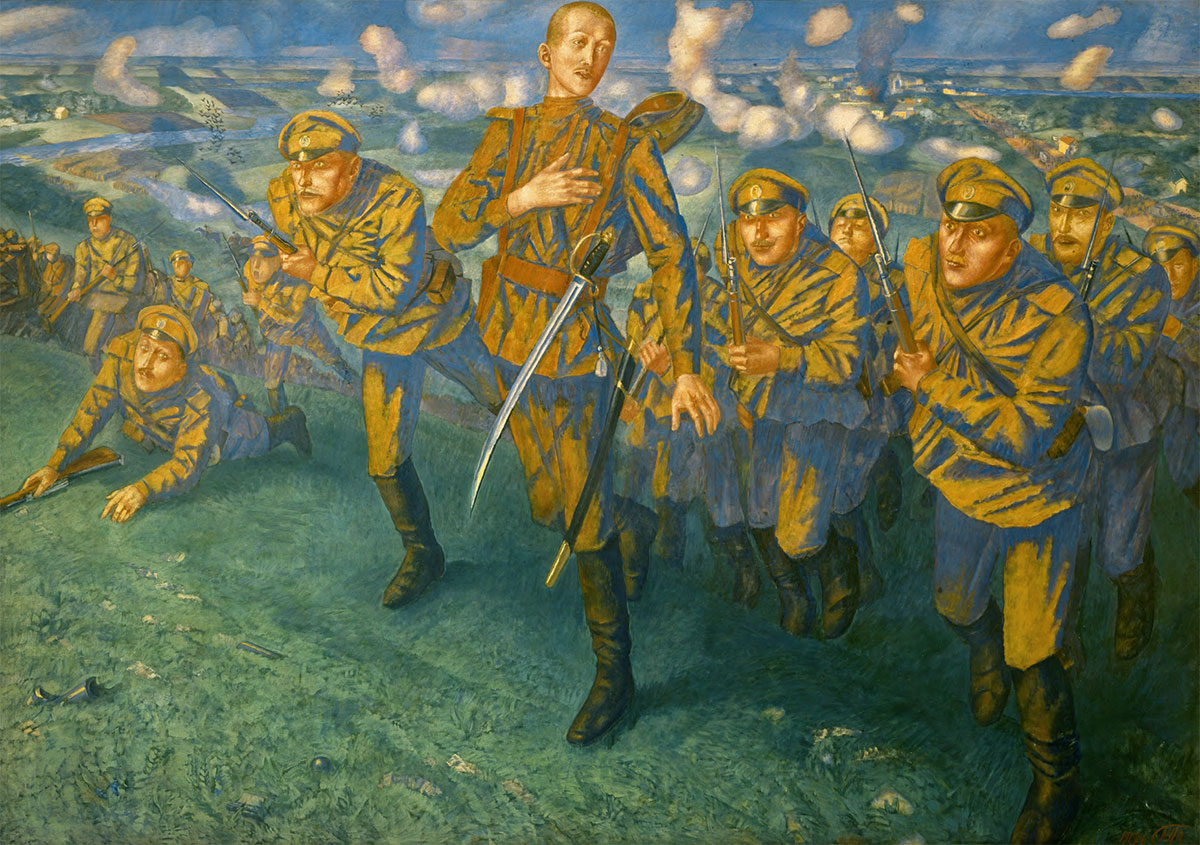Ars vs Bellum
“I know it is no fault of mine
Soldiers did not return from war,
That they - older some, others young –
Rest there, where they were killed,
I mourn those whom I could have saved
Yes, I could have saved, but did not...”
ALEXANDER TVARDOVSKY 1966

Natalia GONCHAROVA. Doomed City. 1914. Sheet from the album “Mystical Images of War”
Lithograph. 32.3 × 24.5 cm. © Tretyakov Gallery
War in any form brings home to humanity a sense of its vulnerability, of the closeness of mortality; the accompanying hardship and the immediacy of death exacerbate and heighten our perception of being. The Czech philosopher Jan Patocka (1907-1977) articulated the sense of breakdown of a wider morality in the world that was felt in the years after 1918: “The First World War gave rise to a number of explanations that reflected people’s desire to understand the monstrosity of that event, one that, although initiated by the human race, nevertheless appeared beyond the horizon of understanding of man, whether as an individual or as a larger unit; in itself war became, in a certain sense, a phenomenon that had come from beyond the boundaries of the planet itself.”[1]

Kuzma PETROV-VODKIN. In the Line of Fire (Attack). 1916
Oil on canvas. 196 × 275 cm. © Russian Museum
Men of letters - writers, playwrights and poets - as well as artists and sculptors, composers, filmmakers and philosophers from both sides of the conflict would reconsider, each in their own way, the dramatic and existential experience of war, in prose and poetry, painting and sculpture, music and cinema.
- Patocka, Jan. “Heretical Essays in the Philosophy of History". Minsk, 2008. P. 148.
Print on paper. 112 × 88 cm
© Tretyakov Gallery
Study for the painting “In the Line of Fire (Attack)” (1916, Russian Museum)
Charcoal pencil on paper. 20.7 × 17.3 cm
© Russian Museum
Study for the painting “In the Line of Fire (Attack)” (1916, Russian Museum). Charcoal pencil on paper. 20.7 × 17.1 cm
© Russian Museum
Moscow, Alexander Levenson fast-printing workshop. Lithograph
Chromo-lithograph, print on paper. 98 × 69 cm
© Tretyakov Gallery


















